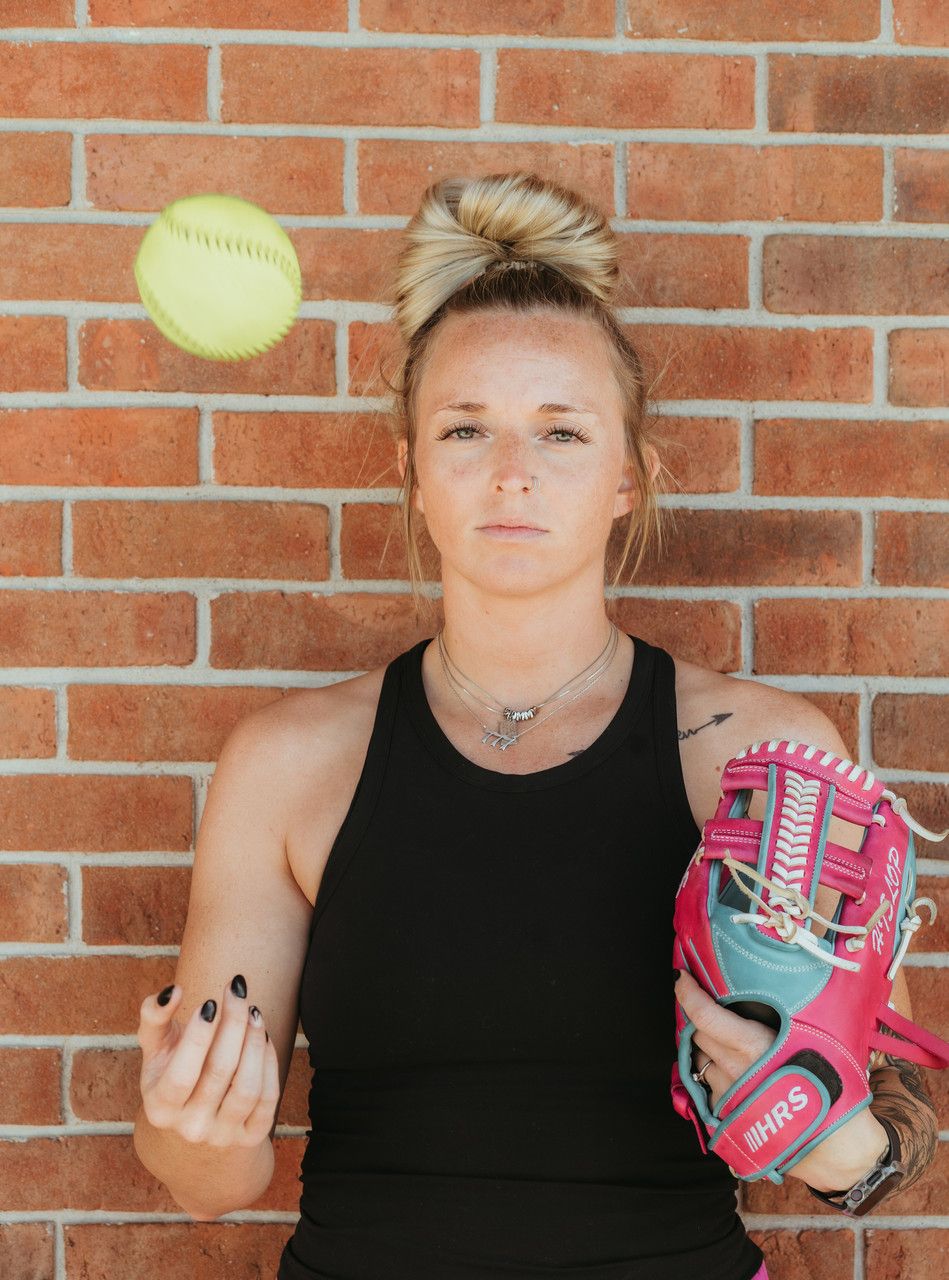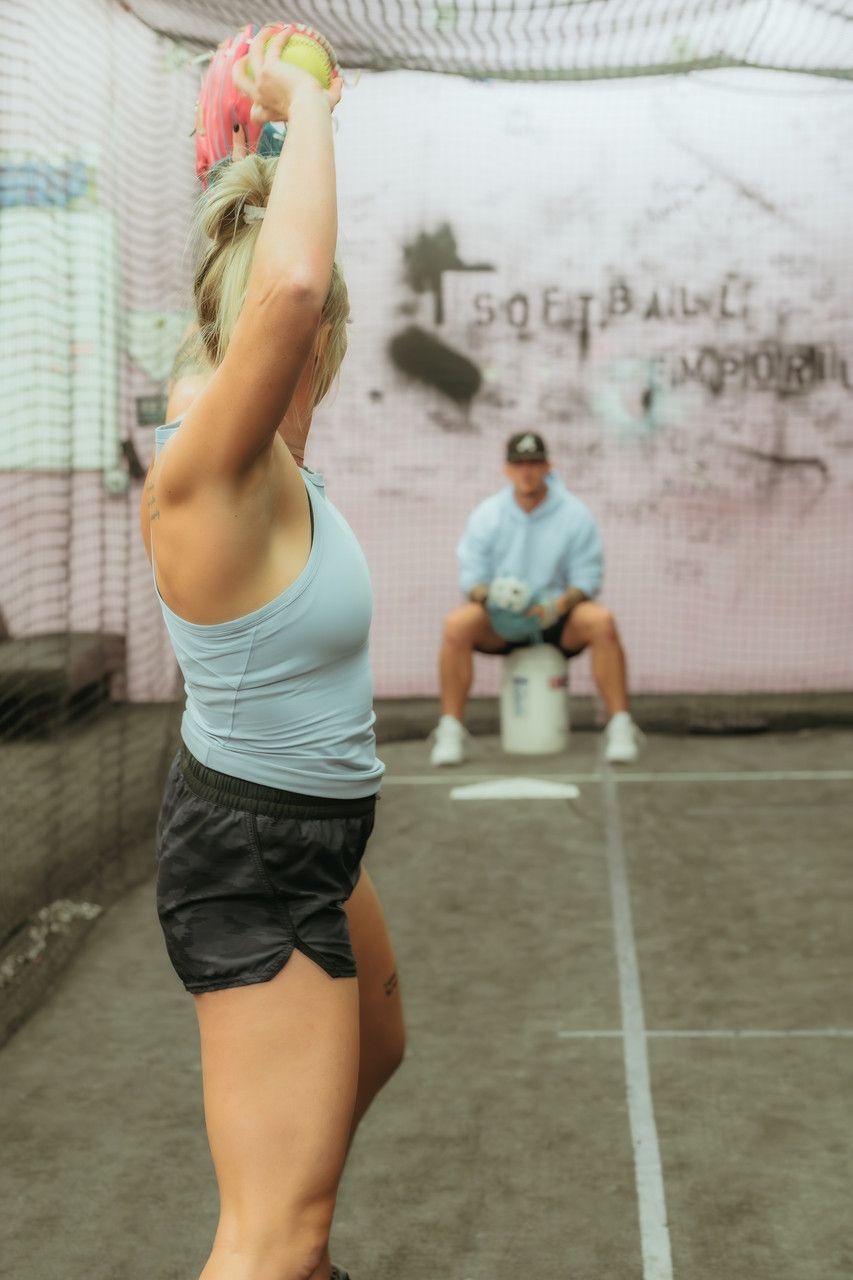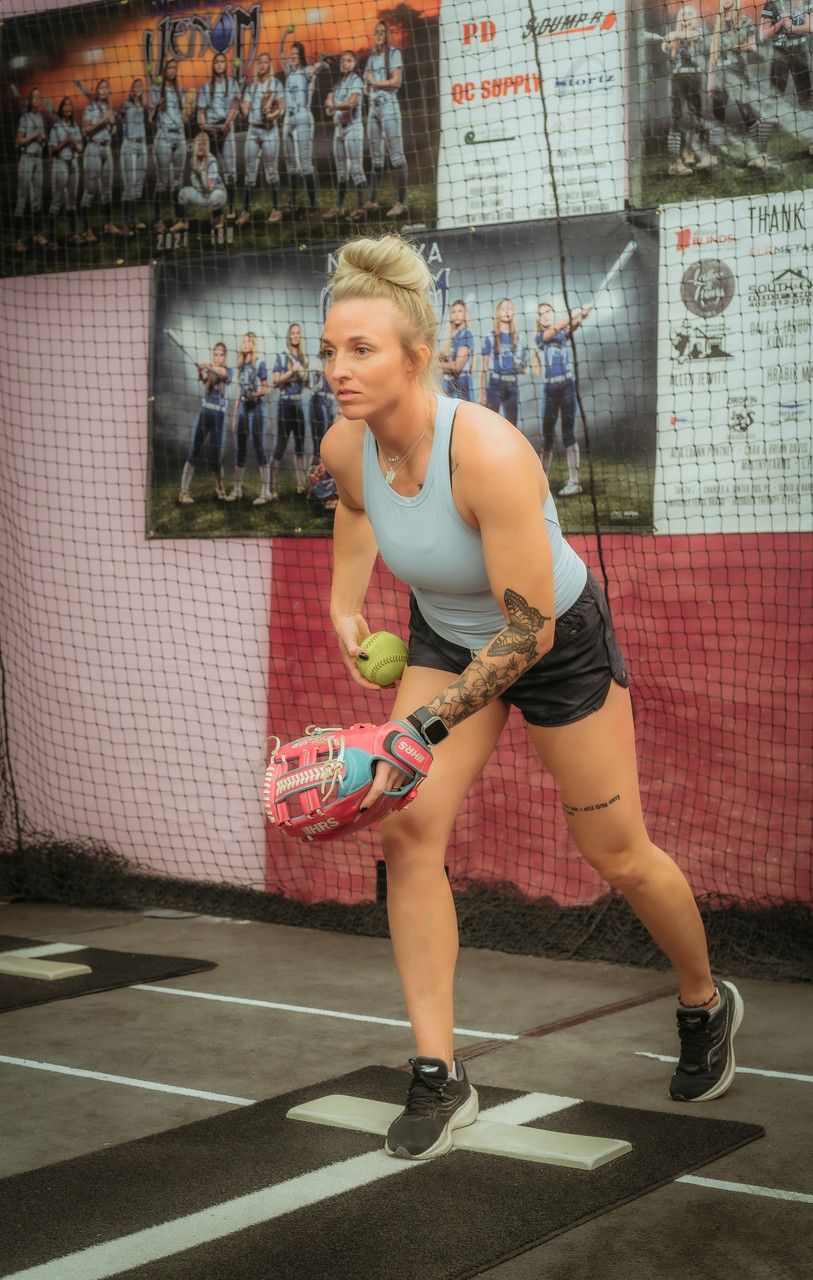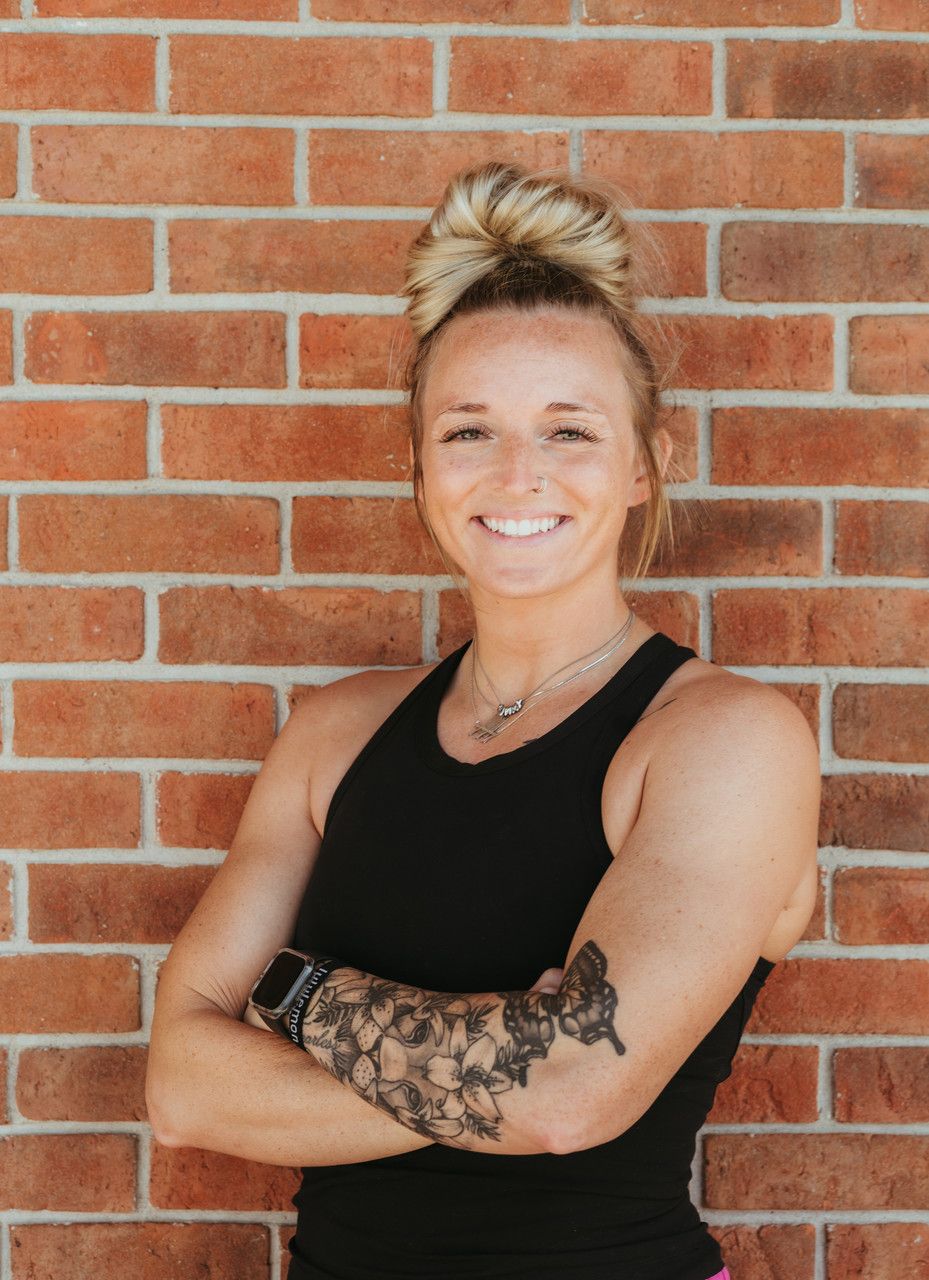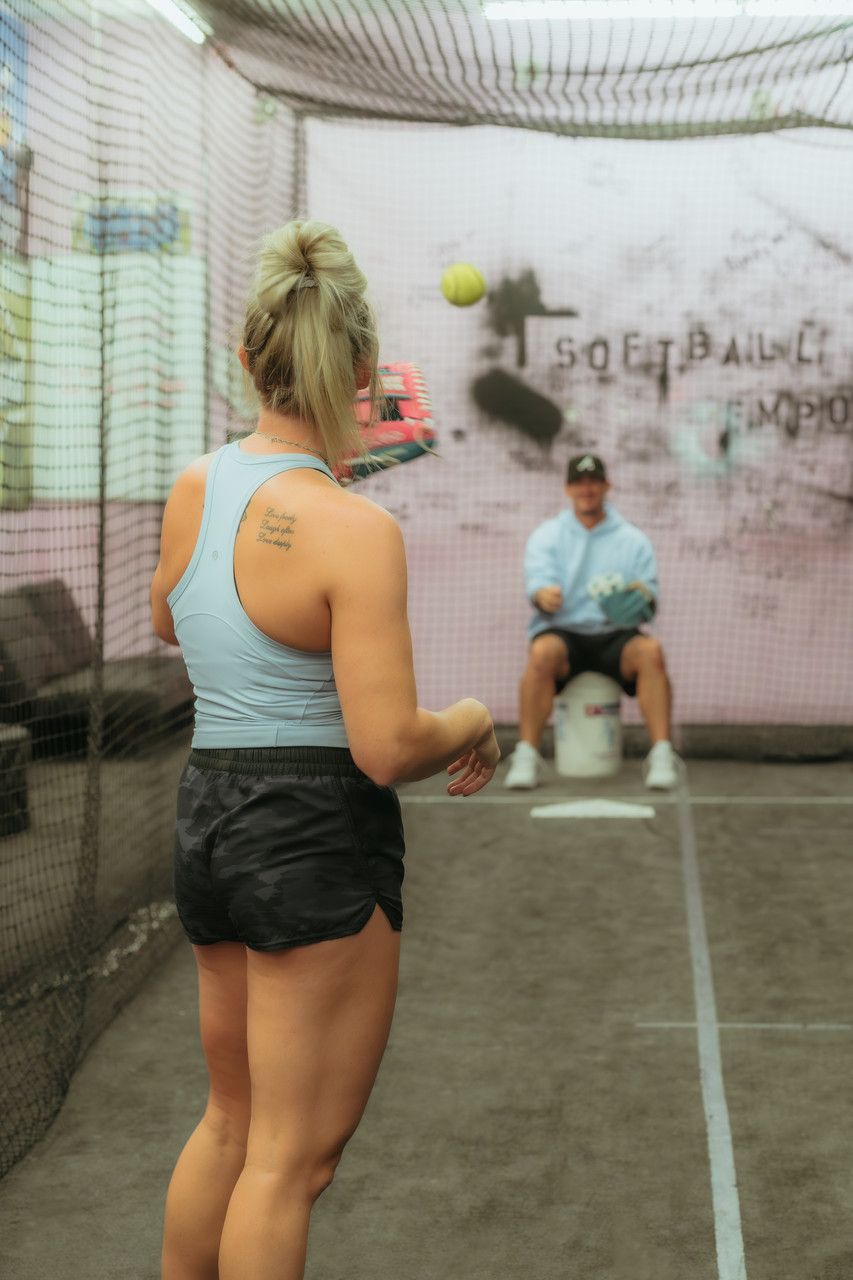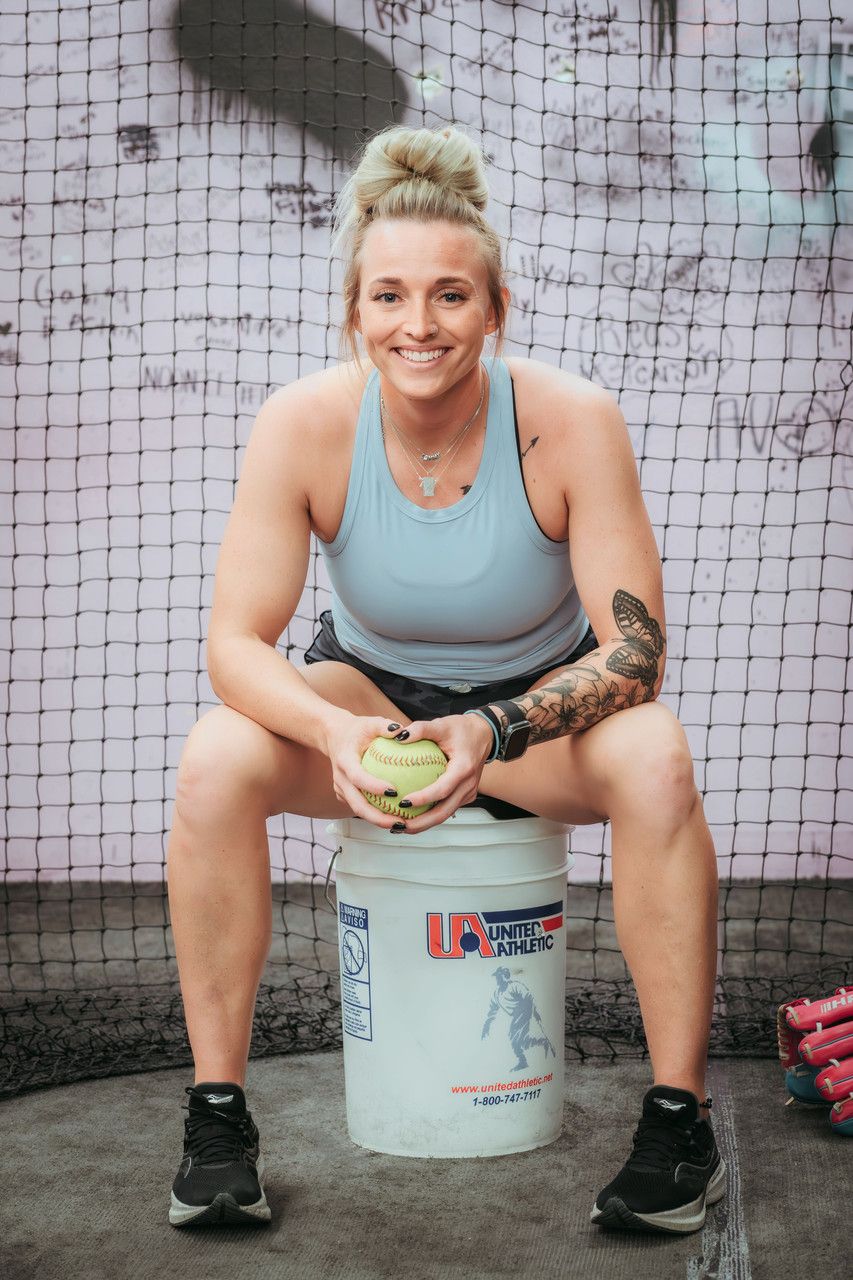There’s one thing Samantha Hislop wants to make clear: the man in her viral Bucket Dad videos isn’t, well, her dad. That’s news to an embarrassed reporter requesting an interview with her and her father.
No, in her Bucket Dad TikToks that have amassed millions of views, Hislop is talking to her fiancé, John Parsons, when she says things like “You look like Wreck-It Ralph” or “Now that you’re done taking your ‘roids can we get going?” And Parsons isn’t talking to his teenage daughter when he says things like “here comes the disappointment…” and “put away your purse and put on your big boy pants!”
In their most popular video, which has garnered over 17 million views, their satirical banter is in full effect as they work through a bullpen session.
“Good catch, Dad,” Hislop quips after Bucket Dad drops a pitch. “Was that a ball or strike?”
“It was a ball.”
“It was definitely a strike,” Hislop says.
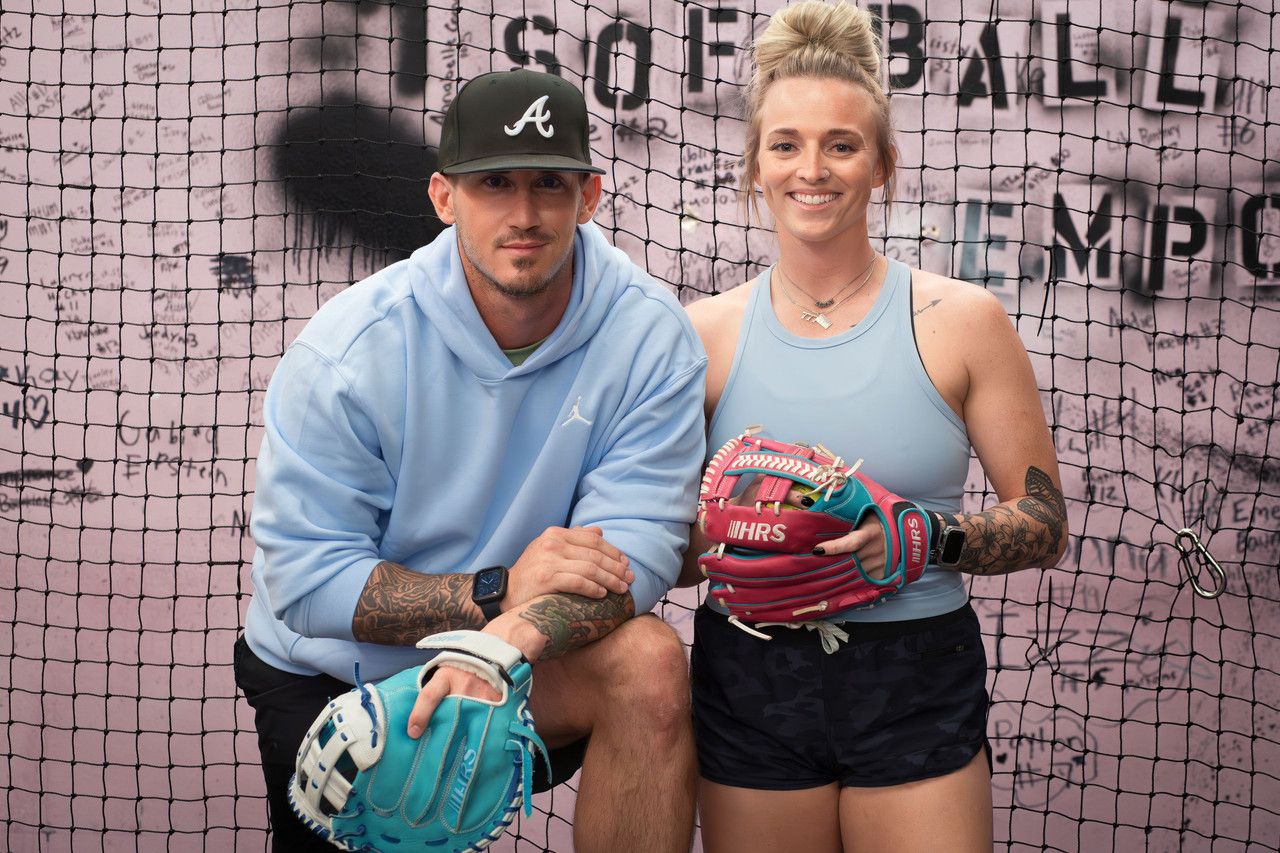
“It was a ball.”
“It’s a good thing you’re not an umpire.”
“You’re the worst pitcher,” Bucket Dad says before ducking and, luckily, catching a strike that would have taken off his head.
“Did that scare you, Dad?” Hislop says. “Do you need a mask? Do you need a mask because you’re frightened?”
“You need an attitude adjustment,” Bucket Dad fires back.
In reality, the two don’t hate each other. They’re an engaged couple with three kids who love sports. Bucket Dad is all part of a script that pays tribute to their younger years of growing up with their own bucket parents.
“We have a lot of fun with it. We think it’s hilarious,” Hislop says during a sunny Nebraska afternoon before she begins coaching. “Some of the things we say I’ve literally heard come out of my dad’s mouth.”
Hislop didn’t coin the term bucket dad, but the softball-player-turned-coach made it internet famous.
“A bucket dad,” Hislop says, “is somebody who comes in and is consistent every single week, isn’t going to let you miss a week, and wants the best for you.”
For better or worse.
“They see the potential you have inside and will do what it takes to pull that potential out of you,” she adds. “Whether that means they’re going to rip you for a bad practice or if they’re going to give you kudos.”
Hislop began playing basketball in fourth grade before her family moved to Texas. She wanted to play basketball, a blessing to her mom who was once a respected player in her younger days. To prove she was serious, Hislop’s dad took her out to the driveway to practice left-handed lay-ups for hours.
“Still, to this day my finger roll is perfect,” Hislop jokes.
It wasn’t long before her athletic skills took over. Soon she joined a travel team, shortly after her family moved to Texas, and with it came the pitch: would she also join the travel softball team? Hislop didn’t care much for softball, but sure. She played in the outfield because of her speed, but she didn’t see a lot of action with the team’s ace pitcher and all.
Samantha Hislop was a two-sport athlete in college, playing softball and basketball. [Jasmine Hoffman photos]
She tired of slogging around the outfield. The pitcher always had the ball, striking batters out and was involved with every play. If Hislop was gonna get serious with softball, she was gonna have to learn how to pitch.
So, she went to her dad.
Bucket Dad: Rude Edition
Pop!
The softball hitting the glove echoes throughout the room.
“If you don’t start running,” Bucket Dad says while sitting behind home plate, “So help me god, everything you love will disappear. Your car. Your phone. You won’t be able to go out with your friends anymore.”
Pop!
“C’mon! Let’s go! Move it!”
Pop!
“Nuked. Absolutely nuked. Think. Pull your head out of your ass and think!”
Suddenly, the popping stops.
“I don’t…” Hislop says. “Pitch to yourself. I don’t want to do this anymore…”
“Oh my god, you sound just like your mother the day she walked out on the family,” Bucket Dad says. “Quitter. Runs in the family, right?”
Hislop is determined, hard-headed, and a bit of a perfectionist. She has her dad to thank for that. So, if she was going to be a pitcher, she was going to be the best.
Hislop could throw hard, but she was wild. Who knew where a pitch was going, which made bullpen sessions in her garage all the more nerve-wracking for her dad who sat behind home plate.
They worked through drills that required Hislop to throw different pitches that focused on hitting her mark. If she hit it with a fastball, she’d move on to her riseball, then a changeup and then a screwball. But if she missed, she’d have to start at the beginning and go through the rotation all over again.
Some days she breezed through the drills. She was focused, poised, and in control. Other days weren’t so easy. She wasn’t dialed in, her pitches were wild, her mind elsewhere.
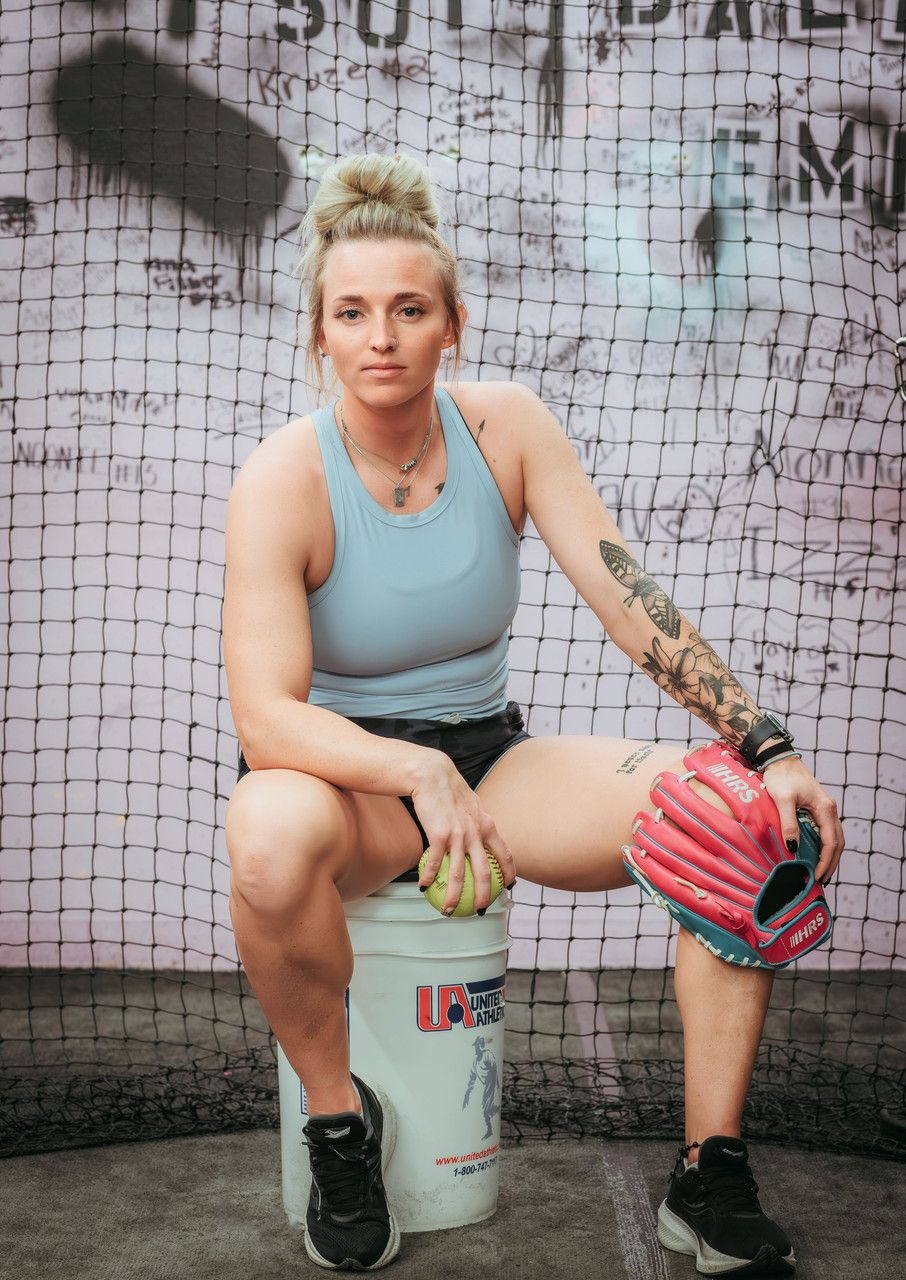
“Focus,” her dad would tell her.
“You need to get dialed in,” he’d say.
“I can tell by your body language and the way your body is moving that you’re not gonna throw a good pitch before you even throw.”
Flustered, Hislop would roll her eyes or bicker back with her dad.
Looking back today, “he knew that I had something deep down inside of me,” she says.
The reactions to their viral Bucket Dad videos are a mixed bag. Some people catch the humor immediately and chime in, “Bucket Dad is a little sensitive today,” or “Bro woke up and chose violence.”
Others aren’t so pleasant.
Commenters chime in: “Why does Bucket Dad make me uncomfortable?”
“I can’t tell if he’s joking or if he’s being really serious.”
“I don’t like the way he talks to her.”
“Seems like such a toxic atmosphere, honestly. I hope he doesn’t ever ruin your love for the game.”
While the comments aren’t threatening, Hislop and Parsons had an in-person encounter that was rather alarming. They were coaching at a tournament when a man reached through the fence and grabbed Parsons. The man had seen their Bucket Dad videos and wanted a word.
“He’s like, ‘It’s nice to meet you. I kind of want to kick your ass,’” Hislop recalls. “He was so serious.”
The couple quickly realized the man was talking about Bucket Dad. “Those videos aren’t real; it’s all fake,” Parsons told him. “I’m not her dad. She’s not my daughter. We’re actually together.”
The man let Parsons go and laughed.
“Oh, well I guess it’s funny then,” he said.
Hislop nearly quit softball in high school. She played varsity and was getting interest from colleges, but the pressure from her dad was weighing on her.
“I was so irritated with everything and so overwhelmed with our relationship that I just didn’t want to do it anymore,” she says.
One day she mentioned quitting and focusing solely on basketball. That’s when he began to ease off.
After high school, Hislop knew she wanted to get as far away from Texas as possible. She also wanted to play both basketball and softball in college. It wasn’t likely a large university would let her, but a smaller school? Maybe. She put together a “rinky dink” recruiting profile. Soon, Midland University in Nebraska came calling. The coach of the softball team promised she could play both sports. His wife, after all, was the women’s basketball coach.

Although Hislop didn’t love the campus on her initial visit, she found a school that would let her be a two-sport athlete, just like she wanted. When Hislop sets her mind to something, she’s going to make it happen. There, too, was the bonus that she would be 10 hours away from home.
Though growing up with a bucket dad was tough, Hislop believes it made her a stronger athlete to survive the rigors of college athletics. When she felt she had no more to give, she pushed deeper to find more strength to push through.
“He was the person who made me recognize how much more I really have in myself,” Hislop says.
Hislop and Parsons, who are engaged, have three children together. [Jasmine Hoffman photos]
During one bad stretch of outings, Hislop’s wild streak came roaring back. She couldn’t find the strike zone and was walking seven, eight, nine or more batters a game. She spent her evenings in the gym throwing at a strike zone on a concrete wall. Why was it she could hit her spots there but not during a game?
“I was just choking,” she says. “I couldn’t figure out what was wrong.”
On a particularly frustrating night, her dad called and left her with a piece of fatherly advice: “Anything you ever do in softball does not define who you are as a person.”
“That provided so much clarity, and I felt like the weight of the world lifted off my shoulders,” she says. “I had viewed myself as an athlete, and solely as an athlete, and my only purpose in life was to be an athlete. I had lost so much of myself in the game.”
Bucket Dad: Nice Edition
“Listen,” Hislop says. “We’re doing something different today.”
“You’re gonna throw strikes?” Bucket Dad quips.
“No. You’re going to be nice today. You’re getting me in trouble on TikTok with your poor parenting.”
“You tell me, kid. What are we doing? I’m here to support you.”
Pop!
“Oh my gosh! That was an amazing spot. Right over the middle of the plate. Good job!”
Pop!
“That was a great spot. Great strike. And I am sure—almost positive—that whoever the batter is was thrown off so much by that pitch, she decided not to swing at the ball down the middle of the plate and the umpire called a strike.”
Pop!
“Christ himself is jealous of how much break that had. It rose hard. Just like he did!”
Hislop’s playing days are long over now, but she still immerses herself in the game. She doubles as a private pitching coach while coaching an 18-and-under girls' softball team with Parsons.
She’s quick to point out that what you see in the Bucket Dad videos is the polar opposite of their coaching styles. She’s the overly optimistic coach who “will find rain on a sunny day.” While Parsons can be more pessimistic and immediately worries when something goes wrong. They balance each other out nicely, she says.
Growing up with their own bucket parents, they’re learning to adapt their coaching styles to individual players rather than a one-style-fits-all approach. Some players, Hislop says, respond well to a hardened approach. Others need more encouragement to succeed. They don’t ever punish anyone for failing; rather, they teach how to respond to failure and focus on learning from it.
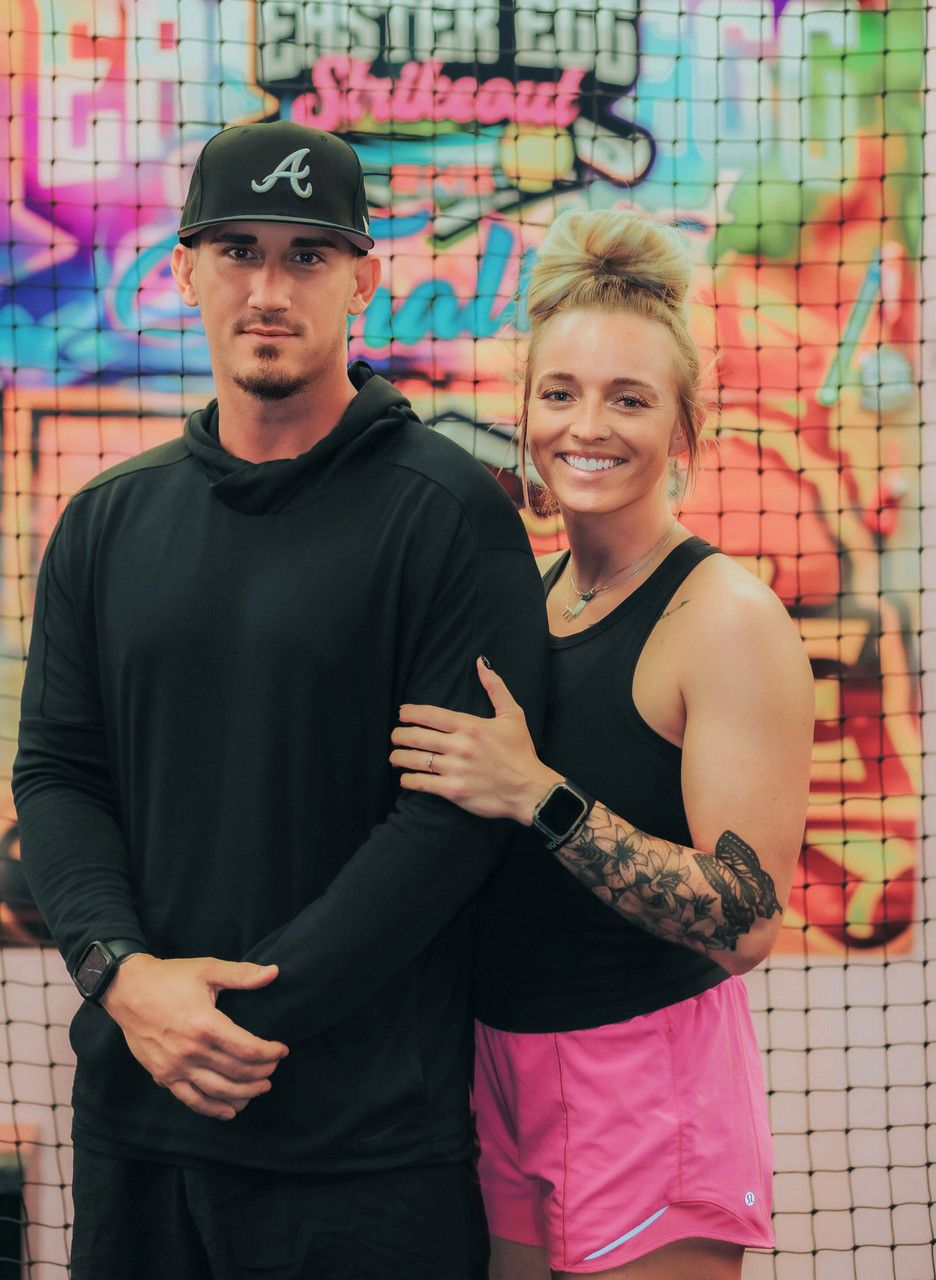
“Our focus is allowing our athletes to succeed and giving them the confidence they need,” Hislop says. “Especially now in youth sports, a lot of kids are struggling with confidence.”
Her love for coaching is evident when she speaks about her team. Her bright smile takes over as she talks about one player who recently signed a Division I scholarship.
She owes a lot to her Bucket Dad, who constantly pushed her to be great.
“When we do our Bucket Dad videos, it makes me really grateful for my childhood because if I didn’t have my own Bucket Dad, I don’t know what kind of person or athlete I would be today,” Hislop says. “I worked my ass off because I wanted him to be proud of me at the end of the day.”
